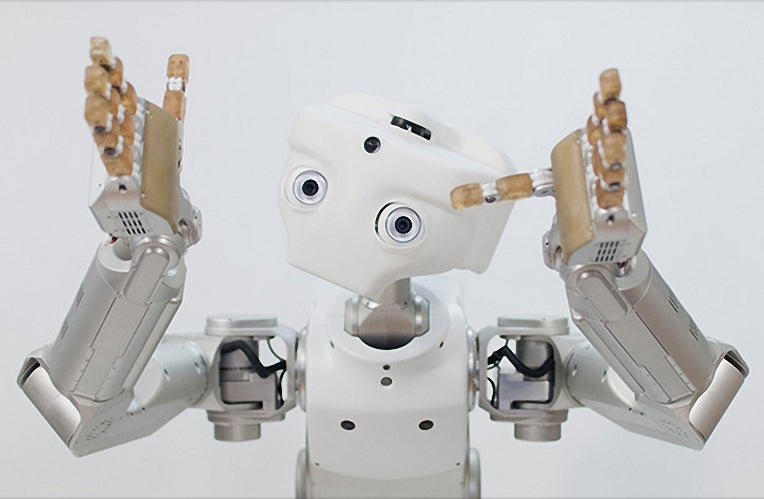Advances in artificial intelligence could lead to mass unemployment, warn experts
Academics say half of US jobs could be automated within a decade or two

Experts have warned that rapidly improving artificial intelligence could lead to mass unemployment just days after Google revealed the purchase of a London based start-up dedicated to developing this technology.
Speaking on Radio 4’s Today programme, Dr Stuart Armstrong from the Future of Humanity Institute at the University of Oxford said that there was a risk that computers could take over human jobs “at a faster rate than new jobs could be generated.”
“We have some studies looking at to which jobs are the most vulnerable and there are quite a lot of them in logistics, administration, insurance underwriting,” said Dr Armstrong. “Ultimately, huge swathe of jobs are potentially vulnerable to improved artificial intelligence.”
Dr Murray Shanahan, a professor of cognitive robotics at Imperial College London, agreed that improvements in artificial intelligence were creating “short term issues that we all need to be talking about.”
"It's very difficult to predict," said Dr Shanahan. "That is, of course, a concern. But in the past when we have developed new kinds of technologies then often they have created jobs at the same time as taking them over. But it certainly is something we ought to be discussing."
Both academics did however praise Google for creating an ethics board to look at the “how to deploy artificial intelligence safely and reduce the risks” after its £400 million purchase of London-based start-up DeepMind.

DeepMind has been operating largely unnoticed by the wider UK technology scene, although its advances in artificial intelligence have obviously been of interest to the experts - founded in just 2012, DeepMind is Google's largest European acquisition to date.
Dr Shanahan hailed DeepMind as “a company with some outstanding people working for it,” noting that the company has mainly been working in the areas of machine learning and deep learning, which he described as “all about finding patterns in very large quantities of data.”
Google’s purchase of the company has led to speculation as to how they might implement the technology. Although there had been some talk of using DeepMind’s algorithms to give ‘brains’ to Google recent robotic purchases, insiders have said that the acquisition was about improving search functionality, not AI.
Regardless of how DeepMind’s expertise will be used, Google’s purchase of the company underscores increasing fears over the impact of technology on employment.
Academics note that although professions have always been threatened by the forces of ‘progress' (a nebulous concept that can cover anything from speedier computers to more efficient steam engines), current trends suggest jobs are being destroyed faster than they are being created.
A recent paper by Carl Benedikt Frey and Michael A. Osborne of Oxford University suggests that nearly half (47 per cent) of all American jobs are under threat and could be automated in “a decade of two”.
Frey and Osborne identify the most at-risk jobs as those which are based in routines (eg telemarketing, low-level accounting and data entry) and which could be replaced by increasingly advanced algorithms, as well as jobs in industry and manufacturing which have already been deeply hurt by advances in the last decades (see video above).
“While computerization has been historically confined to routine tasks involving explicit rule-based activities, algorithms for big data are now rapidly entering domains reliant upon pattern recognition and can readily substitute for labour in a wide range of non-routine cognitive tasks,” write Frey and Osborne.
“In addition, advanced robots are gaining enhanced senses and dexterity, allowing them to perform a broader scope of manual tasks. This is likely to change the nature of work across industries and occupations.”
Unfortunately, it seems that we can assume the same problems will also become rapidly apparent in the UK. Although certain types of jobs are not yet threatened (especially those which involve dealing with other humans – a vague category that can cover anything from healthcare to management) this is no guarantee that they’ll be safe forever.
Join our commenting forum
Join thought-provoking conversations, follow other Independent readers and see their replies
Comments
Bookmark popover
Removed from bookmarks